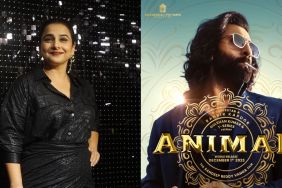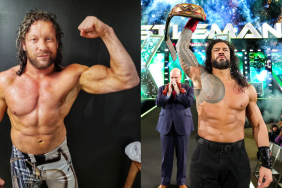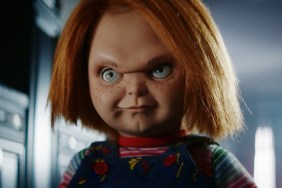For all the millions of people who watch the Food Network every day or who tune into any season of “Top Chef” or one of Gordon Ramsay’s numerous shows, it’s somewhat surprising how long it’s taken for something that’s part of our day-to-day lives to finally permeate every aspect of our entertainment.
This might have been one of the reasons why filmmaker Nora Ephron decided to tackle Julie & Julia, a two-in-one biopic that combines and contrasts the stories of two women as they discover themselves through the food they cook. On the one hand, it’s the story of Julie Powell, a New Yorker who is bored with her life and decides to start a cooking blog with the premise that she will cook her way through Julia Child’s 1961 cookbook “Mastering the Art of French Cooking.” 50 years earlier, Julia Child herself, played with the usual aplomb by Meryl Streep, is struggling to make it within the male-dominated world of French chefs while also writing the very book that inspired Powell.
A few weeks back, ComingSoon.net got to take part in a day of food demonstrations at The Lighthouse at Chelsea Piers where we got to watch the real Julie Powell cook one of Child’s dishes with “Top Chef Miami” contestant Chef Brian Malarkey, who graduated from Le Cordon Bleu. We also got a demonstration from former “Martha Stewart Living” editor Susan Spungen, the culinary consultant who was responsible for all of the delectable food you see in the movie. She showed us how they made the cheese on the onion soup so deliciously stringy.
A couple days later, ComingSoon.net headed out to the wilds of White Plains, for reasons we still haven’t determined, to attend press conferences with Meryl Streep (paired with Stanley Tucci) and Amy Adams (paired with Chris Messina). You can read the interview with Streep and Tucci, who play Julia and Paul Child respectively, below, and the interview with Amy Adams here. (Our apologies to Chris Messina for leaving his responses on the cutting room floor. You were still great in Away We Go, man!)
Q: What were some of the challenges of playing Julia Child without turning it into a parody, because she is such a character? Nora Ephron mentioned you did your Julia impression for her one night when you ran into each other at Shakespeare in the Park.
Meryl Streep: Well, I bet everybody in this room could do their version of Julia Child. To everybody, that voice was so familiar and then how do we know whether we’re doing her or Dan Aykroyd’s version of her? Everyone out there can pull of that (doing impression) “bon appetit!” When Nora gave me the script–which was I can’t even remember when, sometime a year ago–I just thought that it was so, so beautifully written. I thought that it was an opportunity to not impersonate Julia Child, but to do a couple of things. One, for me embodying her or Julie Powell’s idea of her, which is what I’m doing I’m doing an idealized version, but I was also doing an idealized version of my mother who had a similar joie de vivre, an undeniable sense of how to enjoy her life. Every room she walked into she made brighter. I mean, she was really something. I have a good deal of my father in me which is another kind of sensibility, but all my life, I really wanted to be more like my mother. So this is my little homage to that spirit. That’s more what I was doing than actually Julia Child.
Q: What would both of you have liked to ask the characters that you played that you didn’t get a chance to?
Stanley Tucci: Well, I’d like to ask them how they lived so long eating what they ate. I’m convinced that they both had two livers. I’d just be curious. I can’t say that I know what I would’ve asked them, but what I would’ve liked to have done is watch the interaction between the two of them in that little kitchen, either in Paris or in Boston, because to me that was the most interesting thing. When you see that kitchen, we recreated it in the film, it was so casual and really very intimate. I would’ve just liked to have watch that, watch them put together a meal. That would’ve been a great thing.
Streep: I think I would agree. I would’ve loved to have heard Paul’s voice. Julia’s is so vivid and she left behind such an articulate trail of her journey in the book that she wrote with Alex [Prud’Homme] and in “My Life in France” and in her cookbooks. Her voice really comes through. I would’ve loved to have heard him, because he was a great storyteller and his interests ranged across a wide variety of topics and I’m sure that he was sort of a really interesting person to hear.
Q: The romance between Julia and Paul is so dynamic and great in this film, and it’s very touching.
Tucci: Well, it’s pretend. (laughter)

Q: What did you two do then to create that kind of chemistry of an organic-looking relationship and what research did you both do before stepping into their skins?
Streep: Well, Stanley and I are often on opposite sides in a very famous charades game every Christmas. We’ve been at each other’s throats like married people for a really long time, many years. (laughs) We knew each other in that way and I just sort of am in love with him from afar anyway with the totality of the man, from “Big Night” to his acting and directing work and in every way. So does everyone who knows him. He’s just real treat to work with. It wasn’t a tough job to imagine being in love with him.
Tucci: Well, we have to go now. We are in a hotel. Thanks for coming! (laughter) For me it was easy, too. Probably most people in the world I, too, have been in love with Meryl Streep for many, many years. We’d done “The Devil Wears Prada” together which was really fun and we knew each other a bit socially before that, so for me it was awesome. It was incredibly easy. (to Meryl) You also make it easy because you’re so comfortable. I’m always a little nervous when I start shooting and I was very nervous to play around with that.
Streep: Were you nervous when we started?
Tucci: I was so nervous. I was. You made me feel so comfortable. It was nice.
Streep: You know what Nora did. She did what she called a “costume test,” but it was really sort of introducing us to our world. She took us up to the rooms which they built in the Paris apartment that she built in Queens, or wherever they were, and let us walk around in our clothes. In isolation in your Winnebago, or whatever it is, you kind of have a hard time convincing yourself that you are who you say you are. When you walk into this world and the light comes in a certain way and the landscape of Paris a photograph but still and here’s the man of your dreams. It all came together before we had to actually [do it]. That was a big day.
Tucci: Yes, I agree. Those actual physical elements really helped a great deal.
Q: What are some of the best bonding experiences you’ve had over food either while working on this movie or elsewhere?
Streep: I knew Stanley, but I thought, “Well, I might as well invite him over for dinner.” So he came and I decided I’d make Blanquette de Veau, and it was not quite done when he arrived and so he came in and completely took over in the kitchen.
Tucci: This is untrue.
Streep: It’s totally true.
Tucci: We tried to do it together, but we’d had too much wine. “Why are you doing that way?”
Streep: “Is that what you’re going to do? Seriously, I’m just asking.” (laughs)
Tucci: “Why do you hold it that way?”
Streep: “Can I just… it’s okay. I can show you an easier way.” Boom. It was out of my hands. He’s just a great chef and I’m a cook.
Tucci: You’re very kind. It was a fun night, but we didn’t eat until about eleven or so. My wife Kate came and said, “What time are we eating?” I said, “I think we’ll be done cooking about eight.” She goes, “We’re not going to make that.”
Q: If you had the opportunity, what chefs would you like to have over and what would you like them to cook for you?
Streep: Dan Barber.

Q: And what would he make for you?
Streep: Anything that was fresh up there.
Tucci: My grandmother, but she wasn’t there. She was an extraordinary cook. There that night, there were so many of them, but Mario Batali I think in a lot of ways… yeah, Mario.
Q: Now that you’re considered a “box office star,” has that changed anything about the choices you now make?
Streep: I seem to have more choices in the last five years than in the previous five years, maybe. I really don’t know why that is, but part of me thinks it has to do with the fact that there are more women executives making decisions because everything starts with what gets made and where the money comes from. So I’m sure that they’ve had more to do with that really than I have.
Q: Julia Child went through so many challenges in the beginning of her career. What were some of the challenges that you both went through as you started out as actors?
Streep: Well, my challenge was committing to acting, thinking that it was a serious enough thing to do with my life. What are you going to do with your one wild life? I just didn’t think it was… I don’t know. I thought it was sort of silly and vain, acting even though it was the most fun that I had ever done. It remains that, ergo it can’t be good for me. It was just deciding. I remember thinking the first time that someone asked “What do you do?” and I said, “I’m… uh… an actor.” Then I had committed I realized, but it took a long time.
Tucci: I took it too seriously at first and it took me a long time to understand that you have to be serious about what you do but you mustn’t take yourself seriously. That way you’ll be happier and ultimately you’ll be more successful. You’ll be better at what you do. I think the challenges for me at the beginning… well, it was much easier after I lost my hair, to tell you the truth. I started to work constantly once I started to lose it. So I’m thinking about losing the hair on my whole body. (laughter) That’s disgusting.
Streep: It’s going to be repeated everywhere now and come back to haunt you.
Q: You mentioned that you had a hard time committing to acting, so what were some of the other things you were doing at that time?
Streep: Well, when I was in drama school I was obsessed with Jonathan Schell’s book “Fate of the Earth.” I’ve always been interested in environmental issues and I still am. That seems to me be worthwhile work, but over time I understood, just what I think from other people’s work, we need art as much as we need good works. You need it like food. You need it for inspiration to keep going on the days that your low. We need each other in that way. So, yeah. I’ve reconciled myself to the fact that you can make a contribution. I’ve even reconciled myself to the fact that even my children might choose this profession. They seem to be, and now that’s okay. Really I was pushing the sciences but it’s just not going to happen.
Q: Meryl, how important was it to you that this film include McCarthyism at that time and the impact of that on this couple?
Streep: Well, I think it’s really hard for us now to imagine the kind of terror that a lot of people lived under where your entire livelihood could be taken away. I just saw a documentary that’s going to be aired next year for American masses about Joseph Papp. It’s about the early days that he actually went to Los Angeles and worked in a school there. He was in the same class with Marilyn Monroe and these other really, really wonderful actors. And he was a socialist. I actually think he was a member of the Communist Party at some time or another, but people’s lives were ruined within a year. Within one year that black list was a done deal and it was over. It was over. Betsy Rice. Carroll Rice’s wife. They had to move to England and never worked in this country again. So, so many people. I don’t think that we have any sense of it now, how an association in a so-called free country prevent you from making a movie ever. That happened that.

Tucci: Particularly I think in a business where it was also very hard to make a living a lot of the time. So you had everything going against you in a way.
Streep: There are so many mysteries in Julia and Paul Child’s story, really. Now that we know what we know about the OSS and their involvement in some kind of espionage or the CIA, or the early precursor to the CIA, to know really what it was. If you want to know what the question was that I’d like to know, that’s what I’d like to know. What did they do? And how did she write this seven hundred page cookbook in between smuggling secrets from the soviets.
Tucci: She didn’t. J. Edgar Hoover actually wrote the book.
Q: What are some of your favorite food memories, chefs or restaurants, from living in New Jersey?
Streep: Great, great tomatoes, but my mother had the “I Hate to Cook” cookbook. Peg Bracken. Do you remember that? I remember when I was ten going up to a little girl’s house up the street and she and her mother were sitting at the table and they were doing something to tennis balls and I said, “What are you doing?” They said, “Making mashed potatoes.” I said, “What do you mean? Mashed potatoes come in a box.” They were peeling potatoes and I had never seen a real potato. So my mother’s motto was, “If it’s not done in twenty minutes it’s not dinner.” She had a lot that she wanted to do and cooking wasn’t one of those things. My food memories, I mean I think Julia Child really did change the whole… I recently found my knitting book at the bottom of knitting bag from 1967. It wasn’t a knitting book. It was a magazine that had some knitting patterns in it and it was called “Women’s Day” from 1967. It’s filled with recipes and food ads and it’s all Del Monte canned peas, Del Monte canned corn, Del Monte peas and corn, green beans and all the recipes are, like, “Take ground meat and put artificial mashed potatoes, layer it, top it off with tomato sauce out of a jar, put it in the oven and presto it’s dinner!” This is how we ate. People forget. Julia changed the way that people thought about cooking. It was great.
Meryl, how hard or easy has it been to stay focused with all your success in recent years? And how challenging was it to sustain Julia’s powerful voice throughout shooting the movie?
Streep: You know what, I didn’t think about it. I really didn’t think about either sustaining my career or my voice. I haven’t really thought about it. I’m like every other actor. I’ve been unemployed more than I’ve been working because of the nature of what we do. We just have a lot of downtime even though it seems like you’re working, working, working. So I’ve never gotten used to either being working or being out of work. So it’s a very uncertain life and there are only a few people that would sign up to be married to someone else doing that. My husband is an artist and he understands that, the vagaries of the job. I just take it as everyday is a miracle and I’m really glad that I’m still working and that people are not sick of me. Even I’m sick of me a little bit.
Q: And how do you deal with all the accolades you receive?
Streep: Well, fortunately, the blogospshere supplies you with the other side of all the accolades [laughs]. Just sign on and get humble.
Check out the earlier press conference with Amy Adams here. Julie & Julia opens everywhere on Friday, August 7.









